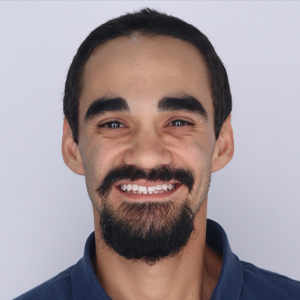At a career crossroads: Exploring postdoc, faculty and industry paths
Am I ready for a faculty position? Do I need more training? Will I be able to get funding? Am I prepared to teach?
These are some of the innumerous questions that fly through my mind as I complete my postdoc.
While my current principal investigator suggests I am not yet ready for an independent career and should pursue another postdoctoral position, the PIs who have interviewed me for the new postdoc roles say I am more than ready to apply for a faculty position. Who should I listen to? Who is right about my career? I am not feeling ready. But will I ever feel ready?

As we stand at the crossroads of an academic career, postdocs find ourselves grappling with a challenging decision: whether to pursue another postdoctoral position or take the leap and apply for a faculty position. This decision is not just about the next step in our career; it's about defining our trajectory in academia and shaping the impact we want to have in the academic community.
On the one hand, another postdoc offers the allure of continued research in a supportive environment without needing to make big decisions, apply for grants or manage people. I can delve deeper into my research interests, collaborate with experts in my field, learn new and cool techniques and potentially publish more papers. Another postdoc could also enhance my credentials, increase my skills and make me a more competitive candidate for a faculty position in the future. I also find the familiarity and security of a postdoc comforting, especially when I consider the uncertainties of a new faculty position.
On the other hand, applying for a faculty position would represent a significant shift in my academic career. It means taking on new responsibilities, such as teaching and mentoring students, and navigating the complexities of academia as an independent researcher. People in academia say this would make me a “grown-up scientist with a real job.” While this prospect is exciting, it comes with its own challenges and uncertainties. Will I be able to secure funding for my research? Can I balance the demands of research, teaching and administrative duties effectively? These questions loom large as I contemplate this path.
Oh, wait. What about industry jobs? Is it too late now? This option remains always open, and it is very tempting. If I want to use my skills and expertise in a more applied setting, industry is attractive. I could work on real-world problems and collaborate with industry partners to develop applied solutions. Industry jobs often come with higher salaries and better benefits than academic positions.
However, in an industry role, I would need to develop new skills and adapt to a different work culture. The work environment may not offer the same level of intellectual freedom, publication interest or opportunity for academic recognition. How much do I value these aspects of my work?
My final decision is further complicated by factors such as the current job market, visa timing issues and the availability of positions in my field. The academic landscape is constantly evolving, and competition for faculty positions can be fierce. Industry jobs can also be very competitive. This adds a layer of pressure to the decision-making process, as I weigh the risks and rewards of each option.
Ultimately, my decision must be driven by a blend of practical factors and personal ambitions. I need to weigh not just what will propel my career, but also what resonates with my values and long-term objectives. For me, aspiring to leave a lasting impact on my field and nurture future scholars is a goal that transcends specific roles.
Given this, I’ve decided to take on a new postdoc position and tweak my research focus a bit to pick up some new skills. I’m hoping this will refresh my project ideas, make them more relevant to both science and society, and boost my chances of securing funding as a faculty member.
Enjoy reading ASBMB Today?
Become a member to receive the print edition four times a year and the digital edition monthly.
Learn moreGet the latest from ASBMB Today
Enter your email address, and we’ll send you a weekly email with recent articles, interviews and more.
Latest in Opinions
Opinions highlights or most popular articles

Women’s health cannot leave rare diseases behind
A physician living with lymphangioleiomyomatosis and a basic scientist explain why patient-driven, trial-ready research is essential to turning momentum into meaningful progress.

Making my spicy brain work for me
Researcher Reid Blanchett reflects on her journey navigating mental health struggles through graduate school. She found a new path in bioinformatics, proving that science can be flexible, forgiving and full of second chances.

The tortoise wins: How slowing down saved my Ph.D.
Graduate student Amy Bounds reflects on how slowing down in the lab not only improved her relationship with work but also made her a more productive scientist.

How pediatric cataracts shaped my scientific journey
Undergraduate student Grace Jones shares how she transformed her childhood cataract diagnosis into a scientific purpose. She explores how biochemistry can bring a clearer vision to others, and how personal history can shape discovery.

Debugging my code and teaching with ChatGPT
AI tools like ChatGPT have changed the way an assistant professor teaches and does research. But, he asserts that real growth still comes from struggle, and educators must help students use AI wisely — as scaffolds, not shortcuts.

AI in the lab: The power of smarter questions
An assistant professor discusses AI's evolution from a buzzword to a trusted research partner. It helps streamline reviews, troubleshoot code, save time and spark ideas, but its success relies on combining AI with expertise and critical thinking.

